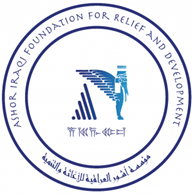
Ashor Iraqi Foundation for Relief and Development
un-jobs.net

Description
The project aims to build the capacity of 90 vulnerable women and farmers (60% females and 40% males) in sustainable agricultural practices to enhance their resilience to climate change and improve their livelihoods. The training will focus on key topics such as zero-tillage farming, land fallowing, efficient water irrigation systems, water harvesting techniques, use of organic fertilizers, and the risks of overgrazing and overwatering. Participants will be selected based on socio-economic vulnerability, engagement in agriculture, vulnerability to climate change, and willingness to adopt new practices.
The training will be conducted over 18 days in selected villages, with different 6 locations (3 days training per location). The trainer will play a critical role in delivering high-quality, practical, and engaging training sessions to ensure participants gain the knowledge and skills needed to implement sustainable agricultural practices.
- Project Objectives:
- To equip participants with knowledge and skills in sustainable agricultural practices.
- To promote climate-resilient farming techniques that improve productivity and environmental sustainability.
- To empower vulnerable women and farmers to adopt practices that reduce their vulnerability to climate change.
- To encourage the adoption of water-efficient and soil-friendly farming methods.
- Scope of Work for the Trainer
The trainer will be responsible for the following tasks:
3.1. Training Preparation
- Review the training curriculum and materials provided by the project team.
- Customize the training content to suit the local context, language, and needs of the participants.
- Prepare practical demonstrations, case studies, and hands-on activities to enhance learning.
- Develop pre- and post-training assessment tools to measure participants’ knowledge gain.
3.2. Training Delivery
- Conduct 3-day training sessions in selected villages, ensuring active participation and engagement.
- Cover the following topics in the training:
- Zero-tillage farming
- Land fallowing
- Efficient water irrigation systems
- Water harvesting techniques
- Use of organic fertilizers
- Risks of overgrazing and overwatering
- Use participatory training methods, including group discussions, role-playing, and field demonstrations.
- Address participants’ questions and provide practical solutions to challenges they face in their farming activities.
- Ensure gender-sensitive training delivery to address the specific needs of female participants.
3.3. Post-Training Support
- Provide participants with handouts or reference materials for future use.
- Offer recommendations for follow-up activities to reinforce learning and adoption of sustainable practices.
- Submit a training report, including pre- and post-assessment results, participant feedback, and recommendations for future training.
-
- Deliverables
- Customized training materials and session plans.
- Conducted 18 days training sessions in each targeted village.
- Pre- and post-training assessment reports.
- A comprehensive training report, including participant feedback and recommendations.
- Duration and Location
- The training will be conducted over 18 days for all target locations.
- Start Date: 01 Mar 2025
- End Date: 31 May 2025
- The trainer will be required to travel to selected villages within the project area
- Project area:
- Doma Idris ,Arabok, and Doma Azeez villages in Qaraj sub-district ,Ninewa province .
- Al-Husseiniya ,Al-Ugla,and Tal al-Ghazal, villages in Al-Zab sub-district ,Kirkuk province
- Reporting
The trainer will report to the Project Coordinator and provide regular updates on training progress. And submit final report after finishing all training sessions.
- Budget and Payment
- The trainer will be provided with 131,000 IQD per day, Total= 2,358,000 IQD
- Travel, accommodation, and meal expenses will be covered by trainer.
Qualifications & Preferred Skills
- A degree in agriculture, environmental science, or a related field.
- At least 5 years of experience in delivering training on sustainable agricultural practices.
- Strong knowledge of climate-resilient farming techniques, water management, and soil conservation.
- Experience working with vulnerable communities, particularly women and smallholder farmers.
- Excellent facilitation and communication skills, with the ability to simplify complex concepts for diverse audiences.
- Proficiency in the local language(s) spoken by the participants.
- Experience in conducting participatory and practical training sessions.
How To Apply
Application should contain the following attachment:
Curriculum Vitae ( PDF)
Two up to date and recent references required (write in CV).
Please submit your CV in English to [email protected] and with “Preventing/Countering Violent Extremism r” in the subject line
The deadline is 1-Feb-2025, by 4:30 pm. Only short-listed applications will subsequently be called for interview. Incomplete applications will not be considered.
To help us track our recruitment effort, please indicate in your email/cover letter where (un-jobs.net) you saw this job posting.
